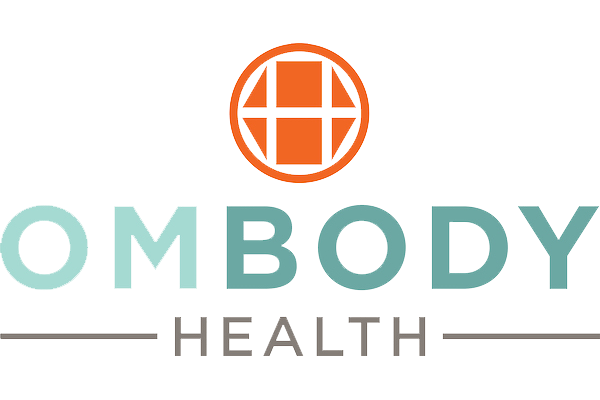Picture this: it’s 3pm and you’re starting to feel the afternoon brain fog drift in while scrolling through your inbox. What do you do? Do you push through it hoping it will go away and you’ll be struck by a miracle second wind? Do you grab another cup of coffee from the machine? Do you take a quick breath of outside air?
When we hear the word attention we usually think of moments of intense focus or concentration. However, what many of us fail to recognize is that attention is not an infinite resource but one that becomes depleted over time. Especially when you consider today’s fast-paced work environments, our attention is constantly being pulled in ten or more different directions. As the day progresses, our ability to maintain sustained attention diminishes, leading to decreased productivity, increased errors, and heightened feelings of mental fatigue.
But here’s the good news: science suggests that taking regular breaks can counteract this decline in attention and actually boost productivity. By giving our brains a chance to rest and recharge, we can replenish our attentional resources, enhance cognitive performance, and ultimately work more efficiently.
So, whether you’re struggling to stay focused during marathon meetings or finding it challenging to tackle that looming deadline, keep reading to discover how you can use the power of breaks to aid your workplace well-being.
The Science Behind Attention
Understanding how our brains manage attention is key to unlocking strategies for improving focus and productivity. Just like our muscles tire after a workout, our attention span can wear out too. This is due to the depletion of attentional resources, a phenomenon known as “attentional fatigue.”
Our brains regulate attention through a complex network of neural mechanisms. Attentional control is essential for tasks that require concentration, such as reading, problem-solving, or engaging in meaningful work. However, distractions (especially the constant ding of phone notification or incoming email) can disrupt our attention and impair cognitive performance.
On the other hand, breaks offer a remedy to this ongoing issue. According to findings from the Tork “Take back the lunch break” survey, “Employees stepping away from work for a few minutes increases their productivity, job satisfaction, mental health and well-being, and are overall more engaged in their work” (Tork, 2018, p. 1). As you can see, taking breaks throughout the workday has benefits beyond just temporary relief. It allows our brains to reset and recharge and replenishes our attentional resources.
How to Make the Most of Your BreaksThe Importance of Taking Breaks
Taking a break is an excellent opportunity to do things that help you clear your minds and be creative. Getting away from work, even just for a few minutes, gives your brain a much needed rest which, in turn, helps you to keep focus throughout the day.
During breaks, you can engage in various activities to refresh your minds and enhance cognitive function. Taking a short walk not only provides physical activity but also allows for a change of scenery from your work environment. This change can stimulate the brain and improve mood, leading to increased creativity, problem-solving abilities, and attention.
Practicing mindfulness is another effective way to recharge during breaks. Mindfulness techniques, such as deep breathing exercises or guided meditation, help individuals relax and center your attention on the present moment.
Additionally, simply enjoying a moment of quiet can be beneficial during breaks. Taking a few minutes to disconnect from technology and external stimuli allows the mind to rest and recover from the various demands of work. This quiet time can spark new ideas, facilitate self-reflection, and promote a sense of peace.
In addition to the activities listed above, consider addressing some key aspects of self-care that contribute to brain performance:
- Stay hydrated: Dehydration can impair attention and concentration, so keep a water bottle at your desk and consume water-rich foods like fruits and vegetables throughout the day.
- Maintain balanced nutrition: Incorporate brain-boosting foods rich in omega-3 fatty acids, antioxidants, and complex carbohydrates into your diet (and specially the lunch you bring to or buy at work) to sustain energy levels and support cognitive performance.
- Strategically snack: Choose nutrient-dense options like nuts, seeds, yogurt, and whole grain crackers to provide sustained energy without causing energy crashes between meals.
Incorporating different activities into break times throughout the day can optimize your mental health and performance as well as help you stay more engaged during the times where you need to be.
Conclusion
As we wrap up our exploration into the science of attention and the importance of taking breaks, it’s clear that prioritizing our mental well-being is essential for thriving in today’s fast-paced work environments. Our brains, like any other muscle, require regular rest and rejuvenation to perform at their best.
So, the next time you feel the afternoon brain fog creeping in, remember the power of breaks to aid your workplace well-being. Embrace the opportunity to refresh your mind, nourish your body, and cultivate a productive and fulfilling work environment. Your brain will thank you for it.
Author Bio
Victoria DeVita joined OmBody Health in January of 2024 as an administrative and marketing assistant. In addition to her role at OmBody Health, Victoria is an entrepreneur specializing in content writing and marketing. She runs Victoria DeVita Writing, LLC, where she helps B2C businesses create engaging content and develop effective brand strategies.

